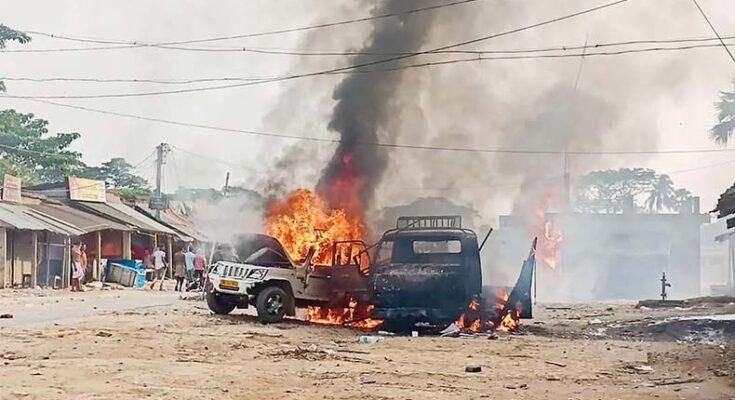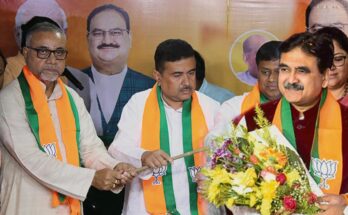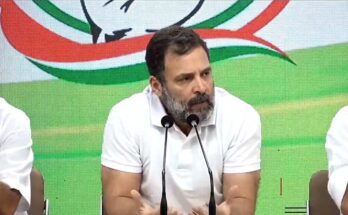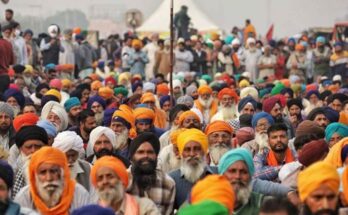Unmasking the Shadow of Violence: Panchayat Elections in Bengal. Image Courtesy – Mid-Day
Introduction:
Elections are the cornerstone of democracy, serving as a platform for citizens to exercise their fundamental right to choose their representatives. However, the smooth conduct of elections in some parts of the world continues to face challenges, with the shadow of violence being an unfortunate recurring theme. One such example is the Panchayat elections held in the Indian state of West Bengal. In this blog, we will delve into the issue of violence during the Panchayat elections in Bengal, examine its underlying causes, and explore potential solutions to ensure free and fair democratic processes.
Understanding Panchayat Elections in Bengal:
Panchayat elections in West Bengal are an essential part of the state’s local governance structure. These elections allow citizens to elect representatives at the village, block, and district levels, empowering grassroots democracy. However, over the years, incidents of violence have marred the electoral process, raising concerns about the integrity of these elections.
Causes of Violence:
Political Polarization: Bengal’s political landscape is characterized by intense competition between various political parties. This polarization often leads to heightened tensions and a winner-takes-all mentality, creating an environment conducive to violence.
Contest for Power and Resources: Panchayat elections play a crucial role in accessing power and resources at the grassroots level. The desire to control local institutions and the associated benefits can lead to fierce competition, sometimes resulting in the shadow of violence.
Weak Law and Order: In some instances, the inadequate deployment of security forces, coupled with a lack of strict law enforcement, has allowed acts of violence to occur with impunity. This absence of a deterrent effect can embolden individuals or groups to resort to violent means.
Influence of Criminal Elements: The presence of criminal elements within the political fabric of Bengal exacerbates the situation. Some candidates with criminal backgrounds or affiliations may resort to violence as a means to secure their interests.
Read: Who invested Rs 20,000 crore in Adani shell firms – Rahul Gandhi
Impact and Implications:
The violence witnessed during the Panchayat elections in Bengal has several significant consequences:
Loss of Lives and Injuries: The most tragic outcome of election-related violence is the loss of lives and injuries suffered by candidates, party workers, and innocent bystanders. This violence not only affects individuals and families but also erodes public faith in the electoral process.
Suppression of Democratic Participation: Violence and intimidation create an environment of fear and apprehension, leading to reduced voter turnout. Citizens may feel reluctant to exercise their democratic rights due to concerns for their safety, resulting in a diminished democratic mandate.
Undermining the Democratic Process: Violence disrupts the free and fair conduct of elections, undermining the principles of democracy. It erodes trust in the electoral system and can lead to a cycle of reprisals and counter-violence, perpetuating a dangerous and divisive cycle.
Seeking Solutions:
Strengthening Law and Order: Ensuring an effective deployment of security forces and strict enforcement of the law is crucial to prevent violence during elections. Swift and impartial action against perpetrators can act as a deterrent.
Awareness and Education: Raising awareness among citizens about the importance of peaceful participation in the electoral process is vital. Educating voters about their rights, promoting non-violent methods of conflict resolution, and encouraging political discourse can help foster a culture of peaceful elections.
Political Accountability: Political parties and candidates must be held accountable for the conduct of their supporters. Disciplinary action against party members involved in violence and an emphasis on responsible campaigning can help curb violence.
Electoral Reforms: Introducing measures such as transparent candidate selection processes, strict monitoring of campaign financing, and effective regulation of political rallies can contribute to minimizing violence during elections.
Read: Modi government bowed down against farmers’ movement
The Escalation of Violence:
The Panchayat elections in West Bengal were meant to be an exercise in local governance, empowering grassroots democracy. However, the process quickly turned into a blood-soaked battleground. Reports indicate that clashes erupted in several districts of West Bengal, resulting in numerous casualties and injuries. The death toll has now reached a staggering 52, with many more injured and displaced.
Implications of the Violence:
Loss of Human Lives: The most tragic consequence of poll-related violence is the loss of human lives. Each life lost represents a family torn apart and a community in mourning. The impact of these deaths extends far beyond the immediate victims, leaving scars on society as a whole.
Erosion of Democracy: Violence during elections undermines the principles of democracy. It instills fear, and intimidation, and hinders citizens from freely exercising their right to vote. The violent incidents witnessed in West Bengal raise serious concerns about the fairness and integrity of the electoral process.
Polarization and Social Divisions: Political violence exacerbates existing divisions and polarizations within society. The clashes during the Panchayat elections have deepened rifts between political parties and communities, straining social cohesion and creating an atmosphere of mistrust and hostility.
Disruption of Governance: Prolonged violence and the resulting chaos disrupt the functioning of local governance. With the focus shifted from development and public welfare, communities suffer from a lack of effective administration and access to essential services.
Addressing the Issue:
Swift Justice: It is imperative that a thorough investigation be conducted into the shadow of violence, and the perpetrators be brought to justice swiftly. Accountability for the loss of lives is crucial to restore public faith in the rule of law.
Strengthening Law and Order: The state government must take immediate steps to strengthen law enforcement and ensure the deployment of adequate security forces during elections. A proactive approach to maintaining peace and order is essential in preventing violence.
Political Responsibility: Political parties must condemn violence and take measures to discipline their members involved in such acts. Promoting a culture of peaceful participation and responsible campaigning is crucial to curb poll-related violence.
Electoral Reforms: Undertaking comprehensive electoral reforms can help prevent violence during elections. Measures such as transparent candidate selection processes, strict monitoring of campaign financing, and effective regulation of political rallies can contribute to minimizing violence.
Conclusion:
The prevalence of violence during Panchayat elections in Bengal represents a significant challenge to the democratic fabric of the state. Addressing this issue requires a comprehensive approach, involving political will, social awareness, and institutional reforms. By promoting a culture of peaceful participation, strengthening law and order, and holding political actors accountable, it is possible to restore faith in the electoral process and ensure that elections are conducted free from violence, thereby preserving the essence of democracy.





